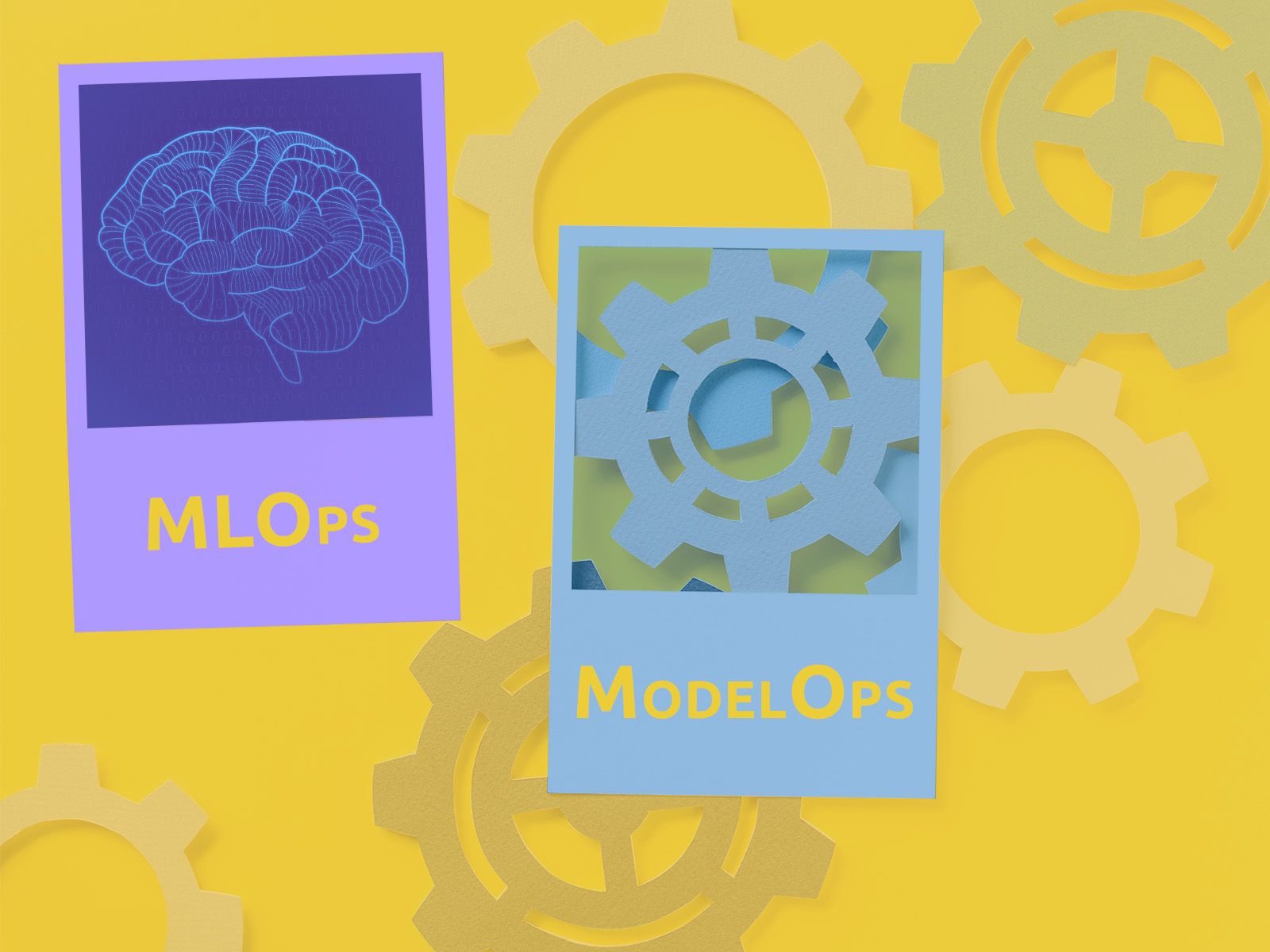Understanding the Difference Between MLOps vs ModelOps
Understanding the Difference Between MLOps vs ModelOps
- Last Updated: October 6, 2025
Nikolai Schiller
- Last Updated: October 6, 2025



In the ever-evolving landscape of artificial intelligence (AI) and machine learning (ML), two terms often come up: MLOps and ModelOps. While they may sound similar and are related to managing the lifecycle of machine learning models, they focus on different aspects of the process.
We will delve into what MLOps and ModelOps are, their differences, and how they fit into the larger AI ecosystem.
What is MLOps?
MLOps, or Machine Learning Operations, is a set of practices that aims to unify machine learning system development (Dev) and machine learning system operation (Ops). Inspired by the principles of DevOps, MLOps focuses on streamlining and automating the machine learning lifecycle, from data preparation and model development to deployment and monitoring.
Key Components of MLOps:
- Version Control: Managing code, data, and environment changes over time.
- Continuous Integration and Delivery (CI/CD): Automatically testing and deploying ML models.
- Monitoring and Validation: Keeping an eye on model performance and data quality.
- Collaboration and Compliance: Ensuring smooth teamwork and adherence to regulatory requirements.
What is ModelOps?
ModelOps is a broader term that encompasses the operationalization of all types of AI models, not just those based on machine learning. It's about getting models into production reliably and efficiently and then maintaining them throughout their lifecycle.
While it includes the principles of MLOps, ModelOps has a wider scope, applying also to models built on rules, heuristics, or statistics.
Key Components of ModelOps include:
- Model Governance: Managing and auditing models for accountability and regulatory compliance.
- Model Lifecycle Management: Handling the progression of a model from development to retirement.
- Scalability and Performance: Ensuring models can handle increased loads and maintain performance.
- Cross-Platform Integration: Facilitating the deployment of models across various platforms and technologies.
MLOps vs ModelOps
Scope
MLOps is specific to machine learning models. It is concerned with the practicalities of developing and deploying models that are created through machine learning algorithms.
ModelOps includes MLOps but also extends to other types of AI models. It is more holistic and includes deploying and managing rules-based systems, knowledge graphs, or other non-ML-based AI technologies.
Objective
MLOps aims to automate and improve the workflow of machine learning projects, making it easier to bring models from the experimental phase to production at scale.
ModelOps focuses on operationalizing models efficiently, ensuring they perform well in production and deliver ongoing value.
Integration
MLOps often involves integrating machine learning tools with existing DevOps pipelines, emphasizing automation and monitoring.
ModelOps is about integrating various AI models into business processes, requiring a broader view that includes model management, governance, and business process integration.
Focus Area
MLOps is centered on the machine learning model lifecycle, emphasizing technical aspects such as data versioning, model training, and serving.
ModelOps takes a more expansive view, including the management of models in a way that aligns with business objectives and IT infrastructure.
Choosing Between MLOps and ModelOps
The choice between MLOps and ModelOps is not about selecting one over the other, but rather understanding which framework best suits your needs:
If your focus is purely on machine learning models and how to scale their development and deployment, MLOps is likely your go-to. If you are dealing with a mix of AI models and need a comprehensive approach that aligns with broader business goals, ModelOps will be more appropriate.
Leverage AI Effectively
Both MLOps and ModelOps are crucial in ensuring that AI models are not only innovative and powerful but also reliable, scalable, and compliant with standards. As AI continues to integrate into the fabric of business and society, understanding these concepts can empower organizations to leverage AI effectively and responsibly.
Whether you choose MLOps, ModelOps, or a combination of the two, the goal is to build a robust AI strategy that supports continuous improvement and delivers tangible results.
The Most Comprehensive IoT Newsletter for Enterprises
Showcasing the highest-quality content, resources, news, and insights from the world of the Internet of Things. Subscribe to remain informed and up-to-date.
New Podcast Episode

IoT in 2026: Trends and Predictions
Related Articles





